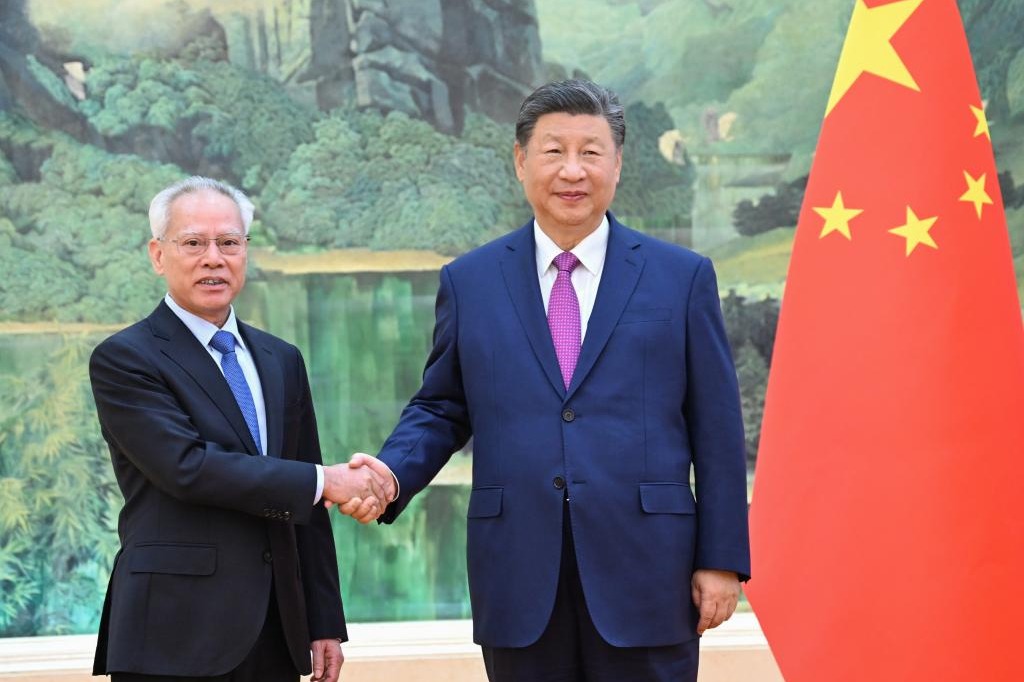Personal pension system holds room for more development
By SHI JING in Shanghai | China Daily | Updated: 2023-04-12 09:50

China's latest attempt at launching a personal pension system will result in the leapfrogging development of securities firms both in terms of additional income and business models, said experts.
In mid-April 2022, the State Council, China's Cabinet, rolled out a plan to introduce the personal pension system. Thereafter, the multilayered system has begun to develop in China, comprising basic pension insurance, annuities and personal pensions.
The plan officially kicked off in late November, with people in 36 Chinese cities and regions including Beijing and Tianjin allowed to open personal pension accounts. The capital within these accounts can be invested in designated financial products.
Most of the personal pension-based products have been issued by leading mutual fund firms, explained Cao Haifeng, a non-banking financial industry analyst of UBS Securities. The top 10 Chinese securities firms hold a 40 percent stake in the 10 largest mutual fund companies. In this sense, leading securities brokerages will substantially benefit from China's latest step forward.
But the expansion of personal pensions in China will advance the development of mutual fund companies in general, as securities firms hold a 30 percent stake in the mutual fund firms on average.
It can be inferred that room for development is huge for China's pension scheme by taking a glance at mature markets, said Cao.
As UBS has calculated, personal pensions only account for 0.2 percent of China's GDP, while the average ratio in overseas markets is 49 percent. The ratio is as high as 70 percent in countries like Chile and Australia, where people divert 20 percent of their financial assets to personal pension accounts.
Therefore, the personal pension system will bring in incremental income for Chinese securities firms of 453.7 billion yuan ($65.89 billion) to 985 billion yuan by 2060, accounting for 16 to 34.8 percent of their total income, Cao said.
Apart from additional income, the business model of securities firms will be reshaped if personal pensions further scale up, said Cao.
Most securities firms serve as "financial supermarkets" in China, working as distribution channels for various products to clients. However, this business only accounts for a limited portion of securities firms in mature markets, where professional investment advisory contributes most of the income.
"For example, a high net worth individual in a mature market may entrust 70 percent of his pension to one firm. The securities firm will charge 1 percent in commission by providing investment advisory services. This makes a considerable size for most financial institutions," he said.
Data provided by the Ministry of Human Resources and Social Security in late January showed that 19.54 million Chinese had opened personal pension accounts by the end of 2022. Among them, 6.13 million have injected capital into their accounts, with the total amount coming to 14.2 billion yuan. The cap that each individual can deposit in his pension account every year is now set at 12,000 yuan.
People can only open personal pension accounts at commercial banks at present. Mutual fund companies are allowed to release products specially designed for a personal pension, whose information can be found at the personal pension commercial banks. Securities firms can only serve as the distributor of these products.
Despite the seemingly roundabout business process, a total of 14 securities firms, including industry leaders such as Huatai Securities and CITIC Securities, have started distribution businesses for personal pension funds-based mutual fund products.
Experts from Industrial Securities believed that personal pensions will start the one-stop transformation at securities firms combining wealth management and investment advisory services, with user viscosity largely enhanced. Different business units at securities firms will be able to seek coordinated development, they said.
Feng Yidong, general manager of Zhongtai Securities and a member of the 14th National Committee of the Chinese People's Political Consultative Conference, submitted a proposal to this year's two sessions that suggests the establishment of a professional investment advisory platform for personal pension investors. Financial regulators could provide special incentives to financial institutions so that the latter will be encouraged to come up with more convenient services concerning account opening and management of personal pensions, he said.
























